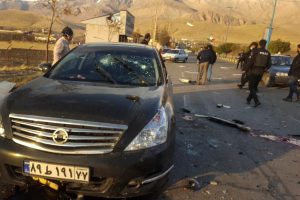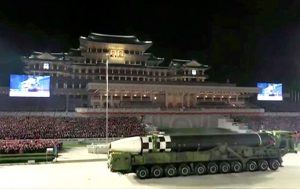Terrorism and insurgency are some of the largest threats facing developed countries. Although many of these militant groups are new, waxing and waning with the political tide, the kind of conflicts they bring are not. The Vietnam war was a major shift from previous wars and one that continues to inform tactics and strategy of today’s counterinsurgency.
These kinds of conflicts are far from over, with new insurgency fronts springing up everywhere. Mozambique has seen recent attention after Islamic State militants violently attacked a farming village in November (Walsh 2020). Similar attacks have even prompted the president of Mozambique, Filipe Nyusi, to seek outside assistance in securing his nation (Hill and Nhamire 2020). Insurgents of the Islamic State now extend beyond the middle-east and are making serious strides in Africa. Insurgency and counterinsurgency are here to stay, at least for the foreseeable future.
History has proved nuclear weapons to be powerful, both when deployed (Hiroshima, Nagasaki) and when held in reserve (diplomacy). The seeming advantage gained by countries possessing nuclear weapons has not gone unnoticed.
Although still unconfirmed, it is extremely likely (and largely accepted) that Israel possesses nuclear weapons. Outnumbered by adversaries in the region, they sought a distinct advantage that could deter violence and aggression. By not confirming their own possession of nuclear weapons, Israel can maximize their threat through opponents’ uncertainty. However, not everyone is accepting of Israel’s nuclear capabilities. The United Nations General Assembly (UNGA) voted on December 07 with a count of 153 to 6 in favor of Israel renouncing possession of nuclear weapons. The resolution was titled “The Risk of Nuclear Proliferation in the Middle East” and requested Israel to “Not develop, produce, test or otherwise acquire nuclear weapons” (MEMO 2020). Nuclear weapons can be perceived as destabilizing, especially if Israel’s adversaries are geographically close. The geographic distance between the United States and Russia likely helped prevent the actual use of nuclear weapons despite high tensions during the cold war.
Perhaps equally as important as working to possess nuclear weapons is preventing your opponents from possessing them too. If your opponent has nuclear weapons because of you, questions concerning the security dilemma become apparent and it’s possible to result in circumstances where you are actually less safe than before. It’s clear countries will go to great lengths to stop or slow nuclear proliferation, as was shown by the assassination of Iranian nuclear scientist Mohsen Fakhrizadeh in Tehran. Fakhrizadeh was the head of the Iranian ministry of defense’s research and innovation organization. He was so instrumental in Iran’s nuclear program, he has been called the “father of the Iranian bomb” (Adams 2020). The attack was performed using a remote-controlled machine gun.

Aftermath of Fakhrizadeh’s assassination (Kirkpatrick et al. 2020)
Unsurprisingly, Iran pointed the finger at Israel who has neither confirmed nor denied involvement. Drastic measures, such as the assassination of state actors, are not uncommon when nuclear weapons are at stake. Israel is responsible for at least 5 assassinations of Iranian scientists from 2007 to 2012, among other efforts, to prevent a nuclear Iran (Kirkpatrick et al. 2020). Israel has taken lessons from the cold war and understands how a nuclear Iran has the potential to spark a heated arms race in the region.

North Korea’s newest ICBM (Sang-Hun 2020)
Similarly, the United States has concerns about North Korea obtaining nuclear capabilities. As recently as October, North Korea has been publicly touting a new intercontinental ballistic missile (ICBM) during a televised military parade in the capital city of Pyongyang (Sang-Hun 2020). With 6 known nuclear tests behind them (from 2006-2017), the threat of North Korea cannot be taken lightly by US officials. South Korea has also seen international tensions with North Korea grow as North Korea destroyed a joint liaison office with South Korea in the demilitarized zone (DMZ) in June of this year (Bicker 2020). If the US and South Korea want to avoid a potential North Korean nuclear attack, careful care and consideration must be made to also avoid a cold-war esque arms race.
Current events clearly demonstrate a knowledge and remembrance of lessons learned from past international security challenges. Winston Churchill famously said “Those who fail to learn from history are condemned to repeat it” to the House of Commons in 1948 (Geller). Vietnam’s unique conflict (at the time) and the nuclear devastation of Hiroshima and Nagasaki are just a few of the many takeaways aiding our understanding of modern security issues.
